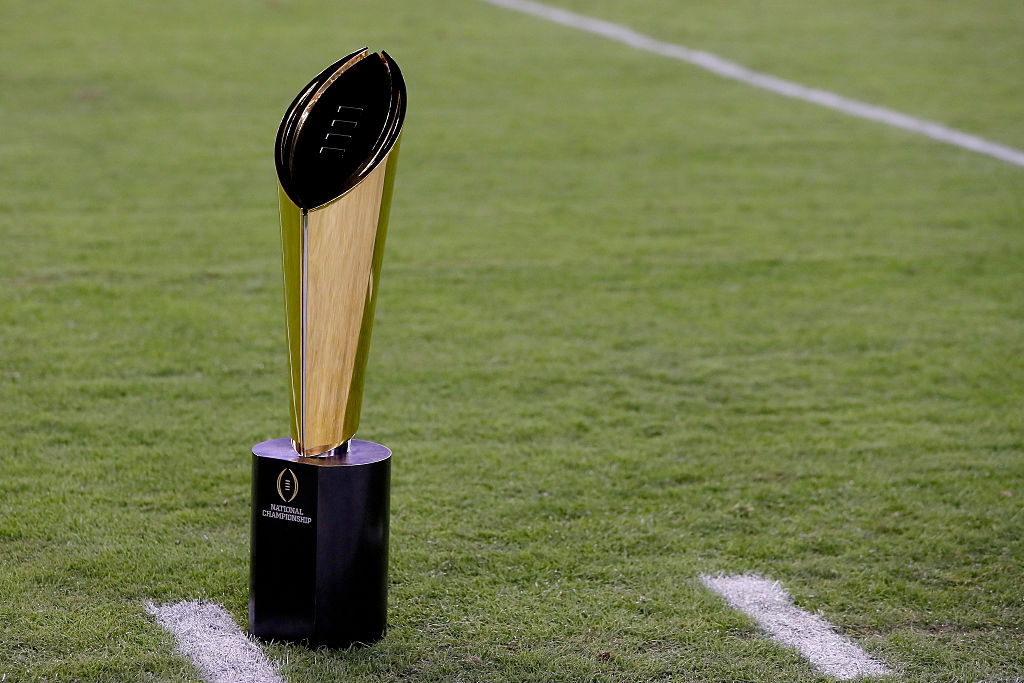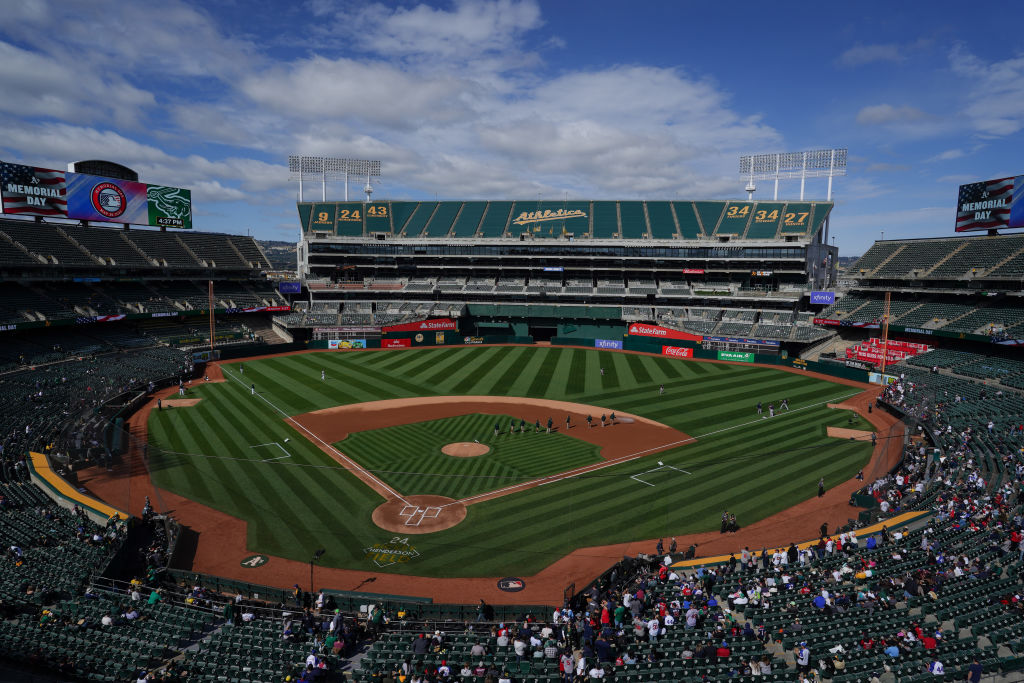Are you ready for a full, wild month of baseball playoffs?


A free daily email with the biggest news stories of the day – and the best features from TheWeek.com
You are now subscribed
Your newsletter sign-up was successful
The Major League Baseball playoffs begin on Friday, Oct. 7, under a new playoff format negotiated last spring by the players' union and team owners. This postseason might well run later in the calendar than ever before, with Game 7 of the World Series to be played Nov. 5, if necessary. Here's everything you need to know about baseball's revamped road to the championship.
The new rules
The biggest change from past seasons is the addition of one wild card team in both the American and National Leagues, making the playoffs a 12-team scrum rather than 10. From 2012 until last year, the two wild card teams in each league squared off in a single do-or-die game. This could be dramatic, but also terribly unfair, as when the best Pittsburgh Pirates team in a generation had the misfortune of facing the on-the-make, 97-win Chicago Cubs in 2015, getting eliminated in the span of a few hours.
So this year, the top two teams in each league get to skip the first round, and the other contenders — each league's three wild cards and lowest-ranked division winner — play best-of-three series at the home park of the higher seed. The winners of those series face the bye teams in a best-of-five Division Series before the two victorious teams meet for the League Championship Series to determine the World Series entrants.
The Week
Escape your echo chamber. Get the facts behind the news, plus analysis from multiple perspectives.

Sign up for The Week's Free Newsletters
From our morning news briefing to a weekly Good News Newsletter, get the best of The Week delivered directly to your inbox.
From our morning news briefing to a weekly Good News Newsletter, get the best of The Week delivered directly to your inbox.
Baseball also eliminated so-called "play-in" games in the event of ties for wild card slots or division titles, opting instead to use head-to-head records to determine the winner. Commissioner Rob Manfred must be silently stewing that the Mets and Braves, both winners of 101 games, aren't set to play a tie-breaking 163rd game in prime time for the NL East division crown, a sentiment surely not shared in Atlanta.
Streaks, stats, and stories to watch
The addition of a sixth playoff spot in each league helped end the two longest and saddest postseason droughts in baseball. The wild card–winning Seattle Mariners, led by 21-year-old phenom Julio Rodriguez, hadn't reached the playoffs since 2001, when their record-setting 116-win team bowed out to the New York Yankees in the American League Championship Series. And in the National League, the Philadelphia Phillies ended a decade of futility by reaching the dance for the first time since 2011, despite a wretched last two weeks that saw them nearly blow their wild card lead to the Milwaukee Brewers.
The Mariners will head to Toronto to face the Blue Jays (the No. 4 seed) and their high-octane offense, while the Phillies will schlepp to St. Louis to square off against the NL Central division–winning Cardinals — the team that eliminated them from the playoffs in 2011.
At the top of baseball's success hierarchy, the 110-win Los Angeles Dodgers will be making their 10th consecutive playoff appearance after winning their ninth division title in that decade. Los Angeles put up the fourth-best run differential of any team in the sport since the beginning of the 20th century, and the best since 1939. Anything less than a World Series Championship will be a huge letdown after such a campaign.
A free daily email with the biggest news stories of the day – and the best features from TheWeek.com
The defending world champion Atlanta Braves continued their run atop the National League East, winning their fifth straight title in style after spending the entire season running down the New York Mets, overtaking them for good only on Sept. 30 — the 157th game of the year. The Mets have the misfortune of being only the 13th team in baseball history to finish in second place after winning 100 games or more. They'll take on the San Diego Padres at home in Queens. The Padres pulled off one of the wildest deadline trades ever in early August, nabbing Washington Nationals superstar outfielder Juan Soto in exchange for five highly regarded prospects, but they were unable to make any headway against the NL West–leading Dodgers.
In the American League, the Houston Astros are making their sixth consecutive trip to the playoffs after a stellar season that saw them win 106 games. Led by the ageless Justin Verlander, the oldest pitcher ever to return to all-star form after Tommy John elbow surgery, Houston is still stinging from their 4-2 loss to the Braves in the World Series last year. They'll sit out the first round along with the Yankees, whose impressive season will be remembered less for the team effort than for the unbelievable contract year of outfielder Aaron Judge, who set the American League record for home runs on Tuesday by swatting his 62nd longball of the season.
The Yankees will face the winner of the Blue Jays–Mariners series. The Astros will take on whoever emerges from the three games the plucky Tampa Bay Rays play in Cleveland against the Guardians, who won the division unexpectedly in their first season since abandoning the "Indians" moniker.
How's this all going to play out?
Regular season dominance is no guarantee of success in the baseball postseason. Unlike the NBA, where no seventh or eighth seed has ever won a championship, baseball's wild cards routinely sneak through to win the World Series, the most recent example being the 2019 Nationals.
Last year there were three 100-win teams in the postseason (the Dodgers, Tampa Bay Rays, and the San Francisco Giants), and none of them made it to the Fall Classic. The winningest team in baseball has won the World Series just four times in the last 10 years, and that includes the Dodgers in the pandemic-shortened 2020 season. But this is all part of what makes the baseball playoffs so much wild fun. The differences between a 107-win team and a 90-win team are negligible over the course of a short series, and any team that sneaks in can get hot and ride it all the way.
David Faris is a professor of political science at Roosevelt University and the author of "It's Time to Fight Dirty: How Democrats Can Build a Lasting Majority in American Politics." He's a frequent contributor to Newsweek and Slate, and his work has appeared in The Washington Post, The New Republic and The Nation, among others.
-
 The ‘ravenous’ demand for Cornish minerals
The ‘ravenous’ demand for Cornish mineralsUnder the Radar Growing need for critical minerals to power tech has intensified ‘appetite’ for lithium, which could be a ‘huge boon’ for local economy
-
 Why are election experts taking Trump’s midterm threats seriously?
Why are election experts taking Trump’s midterm threats seriously?IN THE SPOTLIGHT As the president muses about polling place deployments and a centralized electoral system aimed at one-party control, lawmakers are taking this administration at its word
-
 ‘Restaurateurs have become millionaires’
‘Restaurateurs have become millionaires’Instant Opinion Opinion, comment and editorials of the day
-
 An early look at the college football national champion contenders
An early look at the college football national champion contendersThe Explainer What school could come out on top of the FBS this coming January?
-
 Why baseball's new rules rule
Why baseball's new rules ruleSpeed Read Attendance and viewership have gone up while average game time has gone down
-
 Women's World Cup athletic kits have upped their fashion game
Women's World Cup athletic kits have upped their fashion gameSpeed Read Major brands are embracing gender-neutral and size-inclusive clothing
-
 The fight for equal pay
The fight for equal paySpeed Read The Women’s World Cup is the largest women’s tournament ever, but the athletes are still fighting to share in its success
-
 Saudi Arabia's big sports bet
Saudi Arabia's big sports betSpeed Read The recent PGA-LIV Golf merger is just the tip of this oil-funded iceberg
-
 Who will win the 2023 FIFA Women's World Cup?
Who will win the 2023 FIFA Women's World Cup?The Explainer The global tournament has kicked off in New Zealand
-
 Why the PGA Tour is merging with LIV Golf
Why the PGA Tour is merging with LIV GolfThe Explainer The groups are controversially coming together after a rocky relationship
-
 The Oakland Athletics and the worst baseball teams of all time
The Oakland Athletics and the worst baseball teams of all timeSpeed Read The A's have a chance to make baseball history — just not the good kind
